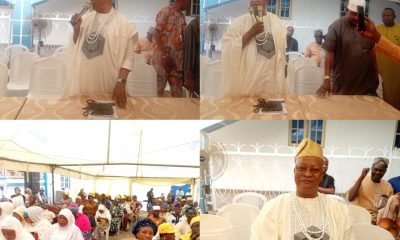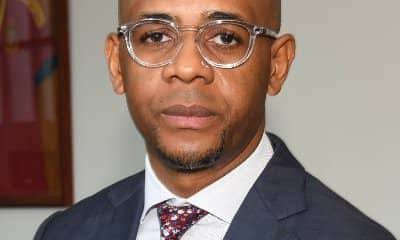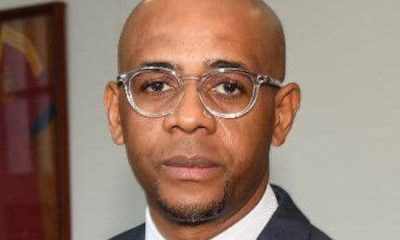Opinion
Ethical And Public Health Implications Of Engonga’s Alleged Actions In E’Guinea And Hypothetical Projection For Nigeria By Shina Adewoye

In Equatorial Guinea, Baltasar Ebang Engonga, the head of the National Financial Investigation Agency (ANIF), has found himself at the center of a scandal that raises critical ethical, moral, and public health issues, Engonga, known for his role as an anti-corruption czar, is alleged to have engaged in extramarital relationships with hundreds of married women, including wives of prominent officials.
This article delves into the complexities of Engonga’s actions from moral and ethical perspectives, explores the public health implications, and hypothetically examines the potential outcomes if such behavior occurred in a larger nation like Nigeria.
Morality and Ethics: The Conflict of Roles and Responsibilities
As the director of ANIF, Engonga holds a position that demands high moral standards and accountability. Corruption is not solely a financial issue; it often intertwines with ethical lapses in personal conduct. Public officials, especially those tasked with rooting out corruption, are expected to set examples of integrity and responsibility. Engonga’s alleged actions intimate encounters with over 400 women, many of them married—present a stark moral contradiction that undermines his public role.
From a philosophical standpoint, this situation raises questions about the relationship between public and private morality. Immanuel Kant’s categorical imperative suggests that one should act only according to rules that could hold for everyone. Engonga’s actions, if true, fail this test of universalizability. John Stuart Mill’s utilitarianism would evaluate the consequences of these actions on overall societal happiness, which in this case appear to be largely negative.
These alleged actions also intersect with issues of marital fidelity, which hold cultural and ethical significance in many African societies. By engaging in such relationships, particularly with married individuals, Engonga disrupts the sanctity of marriage and family structures, generating distrust within communities. This behavior calls into question his personal integrity and suitability to lead efforts against corruption.
Public Health Implications:
A Risk to Personal and Community Health
From a public health perspective, Engonga’s actions present numerous concerns. Engaging in sexual relationships with multiple partners without protection can significantly increase the risk of sexually transmitted infections (STIs), including HIV. This risk is compounded when multiple individuals are involved, potentially exposing their spouses and other community members to these infections, creating a web of health risks.
In Equatorial Guinea, a country with limited healthcare resources, the spread of STIs could place an additional burden on public health systems. According to the World Health Organization, Equatorial Guinea has an HIV prevalence of 7.1% among adults aged 15-49, one of the highest in West Africa. Engonga’s reported behavior reflects not only a potential risk to personal health but also an ethical lapse in taking reasonable precautions to mitigate these health risks.
The country’s chief prosecutor has even suggested that if medical tests reveal Engonga has a sexually transmitted disease, he could face further prosecution under public health laws. This highlights the intersection of personal behavior, public health, and legal accountability.
Hypothetical Scenario, The Nigerian Context:
When we extend this situation to a country like Nigeria, with a population of approximately 220 million—compared to Equatorial Guinea’s 1.6 million—the hypothetical impact becomes staggering. Engonga’s alleged interactions involve around 0.0737% of Equatorial Guinea’s adult female population. Applying this percentage to Nigeria’s estimated 77.4 million adult women, we would see an increase to over 57,000 women in a similar situation.
In a country with Nigeria’s population density, the ripple effects of such behavior would scale dramatically. The potential public health impact, especially in urban areas, could be severe. Nigeria already faces challenges with HIV/AIDS, with an adult prevalence rate of 1.4%. A scenario similar to Engonga’s could potentially accelerate the spread of STIs, straining the country’s healthcare infrastructure and increasing public health expenditures.
Moreover, the trust between public officials and communities would likely erode, further undermining public health efforts, especially those aimed at promoting safe sexual practices. This scenario underscores the importance of ethical leadership in maintaining public trust and health.
Conclusion
The Need for Ethical Leadership and Public Health Awareness
The case of Baltasar Ebang Engonga illustrates the vital connection between personal ethics, public trust, and public health. Public figures must be held to a high standard of conduct, not only because they are role models but because their actions can have far-reaching consequences. For countries like Equatorial Guinea, and in this hypothetical scenario, Nigeria, public health policies should prioritize awareness and prevention to minimize the risks of such behavior.
In an interconnected world where individual actions have societal consequences, leaders must lead by example.
The lessons from Engonga’s situation underscore the importance of ethical responsibility, the necessity for effective public health strategies, and the critical role of cultural values in upholding the trust of the communities they serve.
As societies grapple with these complex issues, it becomes clear that personal morality and public responsibility are inextricably linked. The challenge lies in fostering a culture of accountability that extends from the highest offices to every citizen, ensuring that the actions of individuals, especially those in positions of power, contribute positively to the collective well-being of society.
Otunba Shina Adewoye is Public Policy Analyst
-

 News5 days ago
News5 days agoInsecurity: Kogi Schools Resume On Monday
-

 Opinion4 days ago
Opinion4 days agoDon’t Pull the Plug: Why Nigerians Are Pleading for the U.S. to Extend Its Police Training Program — and Why It Must Synergize With New Military Arrivals
-

 Crime4 days ago
Crime4 days agoVigilante Reportedly Shoots Colleague Dead In Plateau
-

 News2 days ago
News2 days agoRamadan: Osun Cleric Urges Compassion Among Muslims As Asejere Distributes Relief Materials To 537 Beneficiaries







